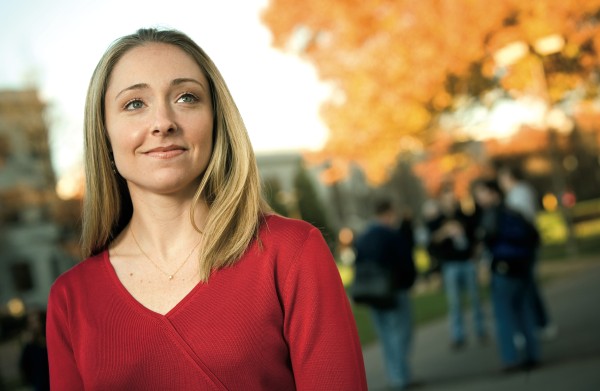Alison Malmon was a Potomac high-school student when her brother came home at the suggestion of the Columbia University counseling center.
For three years, the high-achieving college clown had been depressed and hearing voices, his family learned. A year and a half later, despite intensive interventions, Brian Malmon took his own life.
“He was ashamed and scared,” his sister says. “His friends didn’t know what to do or say. I wanted to let people know that they weren’t alone, that resources are available, that it’s okay to ask.”
Finding no college-based mental-health organizations, Malmon started one at the University of Pennsylvania. Three students came to the first meeting, but 85 attended a coffeehouse to raise funds and awareness. A friend of Malmon’s started a second chapter at Georgetown.
Malmon’s graduation in 2003 meant decision time: Would she teach the flying trapeze at Club Med or take the group national? Some well-known organizations offered to absorb her program, but “I had 1,000 times more passion because of my grief,” she says. She moved to DC and incorporated Active Minds to focus on erasing the stigma of illness and getting college students to open up.
Why is the need so urgent? Schizophrenia, bipolar disorder, and other illnesses typically show up in the late teens and early twenties. Depression is common. One in ten college students has seriously considered suicide; 1,100 follow through every year.
So Malmon gives presentations, raises money, and works with mental-health associations, counseling centers, and student groups to make mental health as widely discussed and understood as physical health.
Active Minds has 100 chapters. “I’d love to see one at every college in America,” she says; she’s aiming for 300 by 2010. Had the group existed earlier, would it have saved Brian Malmon? “He didn’t realize there were others who suffered,” Alison says. “He didn’t see successful adults being open with their mental-health issues. I think he would have gotten help earlier than he did and not felt so lost.”
Now other students have the support Brian needed. “Being part of this group helped save my life,” read one e-mail to Alison. The thought makes her smile.



















